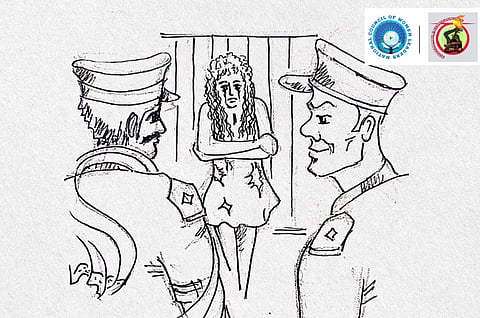
New Delhi- The National Council of Women Leaders (NCWL) has initiated a campaign to end sexual violence against tribal women.
This network of women leaders from marginalized communities across India has compiled historical cases of brutal violence against tribal women, aiming to highlight landmark instances of sexual violence on tribal/adivasi women & girls, & draw public attention to this phenomenon nationally.
NCWL’s campaign aims to spotlight landmark cases of sexual violence against Adivasi women and girls, spanning from 1972 to the present.
These cases illustrate the long-term, deep-rooted nature of this systemic targeting. The Council will also report on the criminal justice system's response—or lack thereof—to such cases, highlighting the specific barriers that survivors and victims face in receiving justice or support.
Here are five such historical cases that everyone must know:
In 1972, a 16-year-old Adivasi girl named Athura moved into a consensual relationship with a boy from her community and married him. Her brother filed a kidnapping case against her partner and his family. Both families were called to the local police station, where their statements were recorded. After the family was asked to leave, two policemen kept Athura behind and sexually assaulted her in the police station bathroom.
Suspicious of the delay, Athura's partner and his family raised an alarm, resulting in a crowd gathering outside the police station. Athura and her partner filed a rape case against the policemen. The Sessions Court acquitted the policemen, labelling Athura a "shocking liar" and someone "habitual to sex." Undeterred, Athura appealed to the High Court, which convicted the two policemen, sentencing them to one- and ten-year imprisonments.
The policemen appealed to the Supreme Court, which overturned the High Court's judgment, acquitting the policemen on the grounds that Athura did not raise an alarm and had no signs of injuries or struggle. The Supreme Court's ruling, which deemed the incident consensual, led to nationwide outrage, sparking protests from journalists, social workers, and the women's movement. The Supreme Court eventually set up a committee to review rape laws, leading to significant legal reforms.
On the night of January 5, 1986, Kantaben and her husband Hannabhai from Devidav village in Gujarat were taken into police custody under suspicion of kidnapping a tribal girl. En route to the police station, Kantaben was raped by four policemen. The assault continued at the police station. Fearful of repercussions, fellow Adivasis were hesitant to file a complaint, and local lawyers refused to take up her case. However, social activists and the Rajpipla Social Service Society took up her cause, fighting a prolonged legal battle to the Supreme Court. Despite fabricated medical reports by the police, sustained demonstrations and public support led to the conviction of the policemen and implicated government doctors. Kantaben's case was unprecedented in Indian legal history, leading to the imprisonment of the culprits and an interim compensation of Rs 50,000 for her.
In April 1993, Rudhiben Vasava, an Adivasi protester from Antras village in Gujarat, was taken by ten policemen without any female constable present. She was abused, stripped, and raped while being transported. Rudhiben was protesting against displacement due to the Narmada dam project. Her case sparked widespread protests, leading to the suspension of two policemen. Rudhiben's ordeal highlighted the use of sexual violence to silence Adivasi women and underscored the intersection of state-sanctioned development projects with socio-economic and sexual exploitation.
Moni Sori, an Adivasi school teacher, was arrested in 2011 on charges of being a Maoist supporter. In police custody, she was brutally tortured, with stones inserted into her rectum and vagina. The Supreme Court directed an independent medical examination, which confirmed her claims.
It is a symbol of the patriarchy of the state that her torturer, the police officer, was decorated with a gallantry award for counter-insurgency operations by the president on Republic Day in 2010.
Moni Sori's case garnered significant attention. By April 2013, she had been acquitted of most charges, and she was released on bail in 2014. However, she continued to face harassment. In March 2022, after a decade-long legal battle, Moni Sori and her nephew were acquitted by a special National Investigation Agency (NIA) court.
In 2011, 16-year-old Seema Khalkho from Karcha village in Chhattisgarh was gang-raped and killed by an armed police search party. The police labeled her a "Naxalite" to justify their actions. Public pressure led to a judicial inquiry, which dismissed the state's claims and confirmed the gang rape and murder by police.
The judicial commission recommended a reinvestigation, leading to a murder case being registered by the state CID. Despite the report implicating 25 police personnel, only one has been arrested. The National Council of Women Leaders has initiated a campaign to end sexual violence against tribal women, emphasizing the historical and ongoing nature of this violence.
The names of the victims/survivors have been replaced to protect their identities.
You can also join our WhatsApp group to get premium and selected news of The Mooknayak on WhatsApp. Click here to join the WhatsApp group.